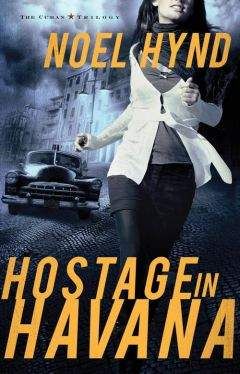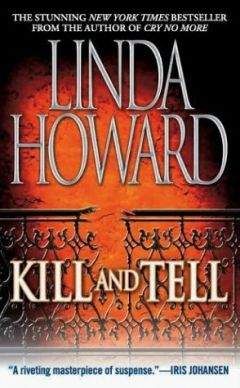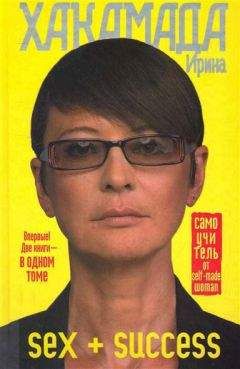Noel Hynd - Hostage in Havana
На сайте mybooks.club вы можете бесплатно читать книги онлайн без регистрации, включая Noel Hynd - Hostage in Havana. Жанр: Полицейский детектив издательство неизвестно,. Доступна полная версия книги с кратким содержанием для предварительного ознакомления, аннотацией (предисловием), рецензиями от других читателей и их экспертным мнением.
Кроме того, на сайте mybooks.club вы найдете множество новинок, которые стоит прочитать.

Noel Hynd - Hostage in Havana краткое содержание
Hostage in Havana читать онлайн бесплатно
They grew louder. They were traveling slowly from the direction of the botched landing. As the rumbling grew, she could tell it was a small convoy. Then Alex saw headlights on the road and lay as low as she could. Then they were within a hundred feet of her. Peering out from behind the overturned skiff, she could see a large truck, no doubt a police or army vehicle, and three smaller units behind it. The first two were vans. They looked official. Then a private car. A big stretch thing. It looked as if it might be a Volvo.
Alex stayed low and prayed. The convoy slowed to a crawl, and she knew that if they stopped and searched the beach, she would be captured. There was nowhere to run, nowhere else to hide, and no way she could escape so large a force.
But the convoy kept going. She stayed down till she could no longer hear it. Then she raised her head, looked around, and, seeing no one, rose to her feet. She brushed the sand from her wet clothes and walked away. She crossed the road. A small fence of stones and tree limbs separated the farmland from the road. She climbed over it. The sky was bright now. She moved across the field as quickly as possible and toward the stand of trees, which seemed to be a fruit orchard. After two long minutes she was within the trees, knowing she would have to stay there for safety.
From the position of the sun, she knew which direction was west. Havana represented her only means to rendezvous with her contact and get off the island in six days – or was it five now? Her mind threatened to shut down. But for lack of a better idea, she decided to continue toward Havana. At least there she would find Violette and Figaro and, most importantly, her failsafe contact, Elke, at the American-interests section of the Swiss Embassy. Seeing herself as a soldier, she had nowhere to march but forward.
She walked for an hour, staying close to the trees, then passing across another open field. She consulted her map and knew that the road that ran along the shore finally merged with a larger one, which continued into Havana. As long as she stayed within sight of the road, she would be going in the right direction.
From a distance, she saw cars and people and trucks in a tiny town, nothing that suggested that a major search was in progress on the beach. That was a good sign, but she couldn’t be sure. Nor did she see anything that indicated anyone was looking for her. She took that as a good omen too.
Her spirits rallied. She was alive, after all. What did God have in store for her? she wondered. She passed by a small stream and investigated. Mercifully, it was fresh water, running, not still. Girl Scouts 101. She finished her bottled water first, then refilled the container.
She continued onward as the sun rose higher. Eventually it found a midpoint in the sky. Gradually, she noticed the things that spoke more of the past than the present: rusted old gates, decrepit buildings, faded plaster. An occasional car passed, usually an old one. She resisted the impulse to hitchhike. The day became much hotter, her clothes dried, and finally a consuming fatigue was upon her. Plus, the shock of what had happened was setting in. Yes, the prospect of a rendezvous with her contacts and a rescue in Havana now seemed possible if she could just get there, but she was running on empty. She consumed one of her granola bars but knew that she would have to rest soon.
She found herself at the edge of another small village. Her path had taken her uphill. She was following the road that ran on a small cliff above the shore. Each time she heard a heavy engine approach, she hid. She sat for a moment. She unzipped the bottom of her pant legs and converted her trousers to shorts to combat the heat. So what if her outfit stood out? She would die of the heat if she didn’t dress for it.
She checked her watch. It was just past noon now. She knew she had to rest and eventually find more food. She also knew the worst part of the afternoon heat was soon to follow. She wondered if it might be best to stop somewhere. She checked everything that had been in her waterproof case. Everything was intact. She had money and a gun. But if captured by the police or the army, she also knew she would have a lifetime of trouble.
She asked herself what the date was. The tenth of June, she recalled. The airlift to get her off the island would be in five days. If Paul was dead or had been captured, his mission was blown. So she would have to focus on hers. She tried to think rationally but knew that without sleep, she wouldn’t be able to. A battered road sign said she was nearing the village of Santa Clara del Sur. She made a decision. She started to walk.
She walked for hours. Once, she came by a roadside stand that sold fruit. She bought some oranges and bananas and three more bottles of water. And she continued, ducking under cover whenever she heard vehicles approaching. The area was amazingly desolate, and she felt lost, worse than defeated. In her mind, a prayer turned over and over, but she kept moving forward. There were some wooded areas, and she stopped three times for rest, fighting off fatigue and sleep.
She was afraid to hitchhike. She was afraid to look for an inn and didn’t see one anyway. She was afraid to go to a farmhouse or any cottage for help. Eventually, as the day died, she saw a small shack in the corner of a small field, and she went to it. She pushed a door and the clasp that held a lock came open easily. Inside, there was a small collection of farming equipment, bags of fertilizer, rakes, shovels, and hoes.
The interior looked as if it had been undisturbed for a while. There was one window, six-over-six panes, but three panes had been broken and replaced by plastic. She entered and pushed the door shut. She sat down and consumed her second granola bar. Her eyelids were so heavy that she could hardly keep her eyes open. She drank more water and had only about a pint and a half left.
Rest. Sleep. That was all she could think about now. She had been awake for eighteen hours following a night in which she had slept for only four hours. She had to recharge her batteries. There was a canvas on a shelf in the shed. It was neatly folded. She opened it and spread it on the sacks of fertilizer. The canvas was surprisingly clean. She pulled her pant legs back on and wrapped herself in the canvas to protect herself from insect bites, forming it into a makeshift sleeping bag.
She bunched up some other cloths and formed a pillow. She closed her eyes and hoped that she could settle in for the night and then continue onward toward dawn.
That was the last thought she would remember as she drifted off to sleep.
FORTY-THREE
Tombs,” thought the old man who passed through El Cementerio de Cristobal Colon in Havana, Cuba. “Tombs, tombs, tombs. It’s all about tombs.”
He walked with a shuffling gate, the result of a minor stroke that had gone undiagnosed months earlier. His right hand worked with an old hickory cane, carved years ago by a forgotten craftsman, a cane with a handle carved into the shape of a parrot’s head.
The old man’s eyes were tight and brooding. The flesh under his chin sagged, but not his face. The sun had long since crossed the midpoint of the sky and was now nearing the horizon. Sweat popped from his brow, then from the rest of his body. It was one of those deceptive days in late spring in Havana. He had always loved his literature, so the line from Andrew Marvel occurred to him: “Time’s winged chariot,” he thought, was racing across the sky. He had no idea where thoughts like this came from other than that he had been overeducated in his college years. But who cared about the classics anymore? Who cared about religion, morality, or even wealth? Who knew anything when you were seventy-two years old on a hilltop in a communist country with the sun playing tricks with your brain?
“Who knows, who knows, who knows?” he thought. Then, “Who cares?”
As he walked, he imagined his future beckoning to him from the stones and tombs. He took solace from the dates and names of people who had passed peacefully from this world, leaving little to be remembered except for some numbers and maybe a simple epitaph. “The grave’s a fine and private place,” he quoted Marvel to himself again. As he wandered, he sought tranquility and consolation, taking comfort from the bittersweet architecture of the sepulchers and the certainty that all mortal beings come to a place such as this. In his way, he sought a tangible link to the past, a window into it, a remembrance of it.
The Christopher Columbus Cemetery was on a hilltop in the old Vedado neighborhood of Havana, Cuba, just south of the Plaza de la Revolucion.
El necropolis. The City of the Dead. Almost a hundred fifty years ago it had been built on top of the old Espada Cemetery. The Spanish architect Calixto de Loira had designed it. The cemetery had been built when Havana had run out of catacombs.
The old man walked by the grandiose monuments and tombs that the tourists came to see, the ones that made Colon Cemetery famous. There was a seventy-five-foot-high column to los bomberos, the firefighters who had lost their lives in the great Havana fire of May 1890. The monument was a remembrance of the victims of the blaze. On top of the monument was a statue representing the fallen men. The statue remained the highest point in the cemetery and could be seen for miles, even from the sea. Nearby, a contemporary memorial of shiny metal Cuban flags honored the students killed during their attack on Fulgencio Batista’s Presidential Palace in 1957. Martyrs of the Revolution.
There were two monuments to players from the Cuban baseball league, the first erected in 1942 and the second in 1951 for members of the Cuban Baseball Hall of Fame. “A celebration of life or of death?” the old man wondered. There were as many different architectural styles here as there were in Havana. But this was a universe of marble saints and granite angels, stone griffins on tombstones and carved saints watching over small temples, Egyptian pyramids, and mausoleums. Majestic lions sat next to stone-cut effigies of long-deceased dogs and cats. Iron bats flew around family vaults.
In February 1898, the recovered bodies of sailors who died on the U.S. Navy’s battleship Maine were buried here. A year later, the bodies were disinterred and brought back to the U.S. for burial, some in Key West and some at Arlington National Cemetery. The same thing was going on today, the old man noted with bitterness. The dead couldn’t be allowed to stay dead – at least, not in one place. With nearly a million humans buried here, new space was now nearly nonexistent. There was a new policy in the workers’ paradise: after three years all old remains were removed from their burial plots, boxed, and sent to a modern storage building.
The old man took stock of the famous as he walked: Ibrahim Ferrer, the musician who became famous with the Buena Vista Social Club; Alberto “Korda” Gutierrez, the photographer who took the iconic photo of Che Guevara; Manuel Arteaga y Betancourt, Archbishop of Havana from the 1940s until his death in 1963, who opposed both Batista and Castro and still managed to live until his eighty-fourth year.
Then the old man found the tomb he wanted. He knelt down beside it. He didn’t pray so much as he closed his eyes and attempted to communicate, to seek solace, maybe even some forgiveness. He was sure that a spirit inhabited this place, the spirit of someone he had known and loved at a time that now seemed long ago. So much had happened. So much should have been forgiven, but wasn’t.
His shoulders were bent as the sun continued to pound down on him. He said a prayer. He wondered if God was listening. He wondered if God was even there.
In the distance dogs barked, one of the groups of strays that slip into the cemetery through gaps in the old creaking walls. Then the old man climbed to his feet, using the stone itself to steady himself. It was all wrapped up together in this place, the past, the present, and the future. It came together here just as he knew that it would come together soon again in the future.
He turned and retraced his path down the hill, struggling with a gnarled hand on his cane, knowing that a bitter day was coming, and that it would arrive soon.
Very well, he thought to himself. He had said his final goodbyes and seen a final Havana sunset from this solemn but enchanting place. Most of the good-byes, anyway. His hand went to the other pocket of his pants where he kept a small pistol, twenty-two caliber, American made. He hadn’t fired it in years, but, like himself, it still had life in it.
Some good-byes were more final than others, and the old man wanted to do them all properly.
For Manuel Perez, the trip to Cuba had been much easier than it had been for Alex, since no reception committee was waiting for him. He was in CIA custody, and his new handlers had brought him by unmarked jet into a vast naval base on the southeast tip of the island, where he was well received and well fed.
He was also well equipped. New armaments were given to him. A pistol and a sniper’s rifle. He remained at the base overnight and was then moved to Havana. He wasn’t there to enjoy the nightlife, however, as much as to be part of it.
His new handlers, after all, had seen to everything.
FORTY-FOUR
Morning: Alex’s eyes opened in a flash. Somewhere at the edge of her consciousness, there was a sound, like a door sharply closing. It jounced her. She looked up, and three figures were standing before her. The one in the center wore a uniform.
The first thing Alex looked for was whether the man in the uniform was carrying a gun. He was not. To his left was a younger male, no more than a teenager, but very tall and muscular, obviously a farm kid used to heavy labor. He had the same face as the older man, a son, Alex presumed.
To the man’s other side was a woman. Alex sat up quickly. The three cubanos were looking at her as if she had just arrived from outer space. Then her gaze settled briefly back on the well-built teenager. He was holding a machete close to his body.
“Senora,” the older man said, speaking Spanish. “This is our cabin.”
Alex sputtered an explanation. “?Lo siento!” she said. “I’m sorry! I was lost and terribly tired. I will … I will leave.”
The man shook his head sharply and put a hand on her shoulder. “No, no,” he said. “The area is filled with police and army. There was un suceso horrible-a horrible incident – yesterday on the beach. We cannot let you leave. You must come with us.”
Alex drew a deep breath. “?Esta bien!” she said. “All right.”
The woman went to the door and held it open. Obviously, they meant for Alex to follow. The bright rays of the morning sun slanted down onto the floor.
Alex made no effort to flee. The man in the uniform indicated a path that led from the cabin. The boy with the machete stayed behind and closed the door. When Alex looked back, he was using a small hammer to put the padlock and its clasp back in place.
Похожие книги на "Hostage in Havana", Noel Hynd
Noel Hynd читать все книги автора по порядку
Noel Hynd - все книги автора в одном месте читать по порядку полные версии на сайте онлайн библиотеки mybooks.club.




